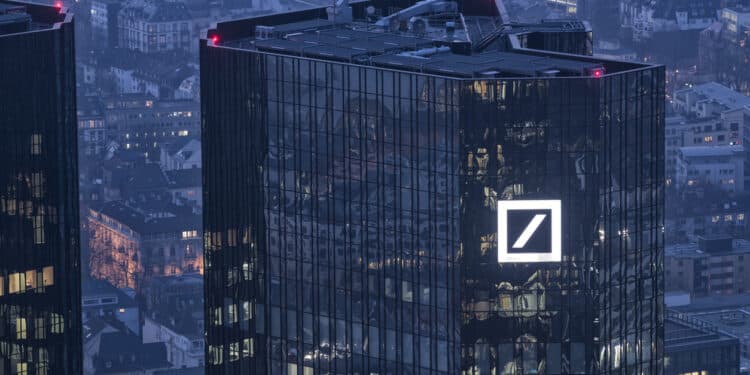On July 19, the US Federal Reserve announced a $186 million fine levied against Deutsche Bank for “unsafe and unsound practices…relating to sanctions compliance and anti-money laundering controls.”
“The Board found that Deutsche Bank made insufficient remedial progress under the 2015 and 2017 consent orders and had deficient anti-money laundering internal controls and governance processes relating to its prior relationship with the Estonian branch of Danske Bank,” the Fed’s announcement states.
The order notes that while the U.S. operations of Deutsche Bank had made “some progress” in recent years, it “remained exposed to heightened levels of compliance risk… including the risk of failing to detect money laundering activity or US sanctions violations.”
The fines are connected to the historic money laundering scheme centered around the Estonian branch of Danske Bank in which $234 billion from Russia and other post-Soviet countries was laundering through Estonia to high-profile European and American banks.
The money laundering scheme was originally exposed by a whistleblower: former Danske banker Howard Wilkinson. In December 2022, Danske Bank pled guilty and agreed to pay over $2 billion to settle money laundering charges connected to the scheme.
“Once again, it was a whistleblower whose reports triggered the numerous investigations into Danske Bank, and its correspondent bank, Deutsche,” said Kohn, Kohn & Colapinto’s Stephen M. Kohn, the whistleblower attorney who represents Wilkinson. “Let’s hope that Deutsche finally gets the message that crime does not pay.”
The Anti-Money Laundering (AML) Whistleblower Improvement Act was signed into law by President Biden on December 29, 2022. The law offers mandatory whistleblower awards and anti-retaliation protections to individuals who disclose money laundering and sanctions violations. While the AML of Act of 2020 established an AML whistleblower program, loopholes in the legislation undermined the program. The AML Whistleblower Improvement Act addresses these problems.


